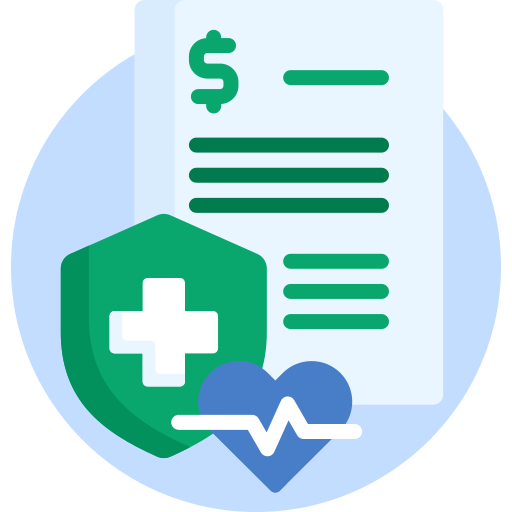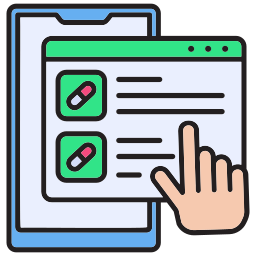Epic EHR has become a cornerstone of modern healthcare, providing hospitals and clinics with a centralized system to manage patient records, clinical workflows, and administrative tasks. Since its inception, it has been important in streamlining operations for some of the largest healthcare organizations worldwide. With a strong focus on efficiency and accuracy, Epic helps medical professionals deliver more coordinated and data-driven care.
As one of the most widely adopted EMR/EHR solutions, Epic stands out for its ability to support large healthcare networks while maintaining flexibility for individual providers. From appointment scheduling to billing and analytics, the platform covers nearly every aspect of patient care. Its widespread use in major institutions like the Mayo Clinic and Cleveland Clinic reflects its reputation for reliability and scalability.
Beyond its technical capabilities, Epic EHR has transformed how healthcare teams interact with patient data. Doctors, nurses, and administrative staff can access real-time information, reducing errors and improving communication. By bridging the gap between clinical and operational needs, Epic continues to shape the future of digital healthcare. Let's understand it in detail about the Epic EHR system.
What is Epic EHR Systems?
Epic EHR Systems is a leading EHR platform that streamlines patient care by integrating scheduling, documentation, and billing into one system. It centralizes patient data, enhances collaboration, and provides real-time insights for better decision-making. Trusted by major healthcare organizations, Epic improves patient outcomes and optimizes clinical and operational workflows.
Evolution of Epic Systems
Epic Systems was founded in 1979 by Judy Faulkner to manage patient records more efficiently. As healthcare digitization progressed, Epic expanded its solutions to include scheduling, billing, and workflow management. A major breakthrough came in 2003 with a Kaiser Permanente contract, solidifying Epic as a global leader in EHR systems.
Key Highlights
- Founded in 1979 – Started as a patient record management system.
- Expanding Capabilities – Integrated scheduling, billing, and clinical workflows.
- Major Breakthrough in 2003 – Secured a contract with Kaiser Permanente.
- In-House Development – Ensures product control and customer-focused innovation.
- Global Impact – Trusted by top healthcare organizations worldwide.
Why is Epic Popular among Healthcare Providers?
Epic is a popular choice for healthcare providers due to its scalability, interoperability, and comprehensive features, making it a preferred choice for hospitals and clinics. Let’s discuss this below in detail:
✅ Scalability for Healthcare Networks
Epic is designed to meet the needs of both small and large healthcare organizations. Whether handling a single medical practice or a network of hospitals, its infrastructure can scale seamlessly. For example, Kaiser Permanente utilizes Epic to support 30 hospitals and over 11,000 physicians, demonstrating how it can manage complex healthcare systems efficiently. The platform enables seamless coordination across multiple facilities, ensuring that patient records, treatment plans, and billing processes remain consistent.
✅ Easy-to-Navigate Interface
Many healthcare providers gravitate toward Epic EHR for its intuitive user interface. The system’s usability function makes it easier for clinicians and administrative staff to adapt quickly. Cleveland Clinic, for instance, was drawn to Epic for its integration capabilities and its simple layout, which reduces the time staff spends on training.
✅ All-in-One Solution
Epic’s ability to handle everything from patient records to billing and scheduling sets it apart. It eliminates the need for separate systems, streamlining processes across an organization. Mayo Clinic uses Epic's features to streamline inpatient and outpatient services, improving care coordination and operational efficiency. The platform enables centralized patient data management, reducing administrative burdens and enhancing patient outcomes.
✅ Commitment to Data Security
With strict regulations around patient privacy, healthcare providers need a system they can trust. Epic offers robust security measures to protect sensitive information, ensuring HIPAA and other regulatory compliance. UCLA Health chose Epic for its advanced security features, protecting patient data while providing seamless access to medical records.
✅ Seamless System Integration
Epic is not just a standalone platform; it integrates seamlessly with existing systems, helping hospitals optimize their workflows. For one of our clients, our experts worked to enhance the overall patient care experience by integrating automated data exchange between Epic EHR and the childbirth management platform through a SMART-on-FHIR app. This integration utilized FHIR resources and real-time HL7 messages, ensuring real-time updates and seamless data exchange across systems. As a result, the hospital was able to improve patient care while maintaining efficient communication between different platforms.
Related Read: Epic EHR Integration Strategies: Best Practices & Tips
✅ Consistent Innovation and Support
Healthcare organizations value Epic EHR for its ongoing improvements and reliable support. The company’s commitment to staying at the forefront of medical technology gives providers confidence that they’ll always have the latest tools. Children's Hospital of Philadelphia uses Epic's integrated solutions to maintain and update their healthcare systems, ensuring high-quality patient care, streamlined workflows, secure patient data management, and enhanced departmental communication.
Features of Epic Systems
Epic Systems streamlines healthcare operations with features like appointment scheduling, patient portals, billing, analytics, and workflow customization, enhancing data exchange across organizations for improved care coordination.
🔷 Appointment Scheduling Made Simple
The scheduling system helps healthcare providers efficiently manage patient appointments, track availability, and reduce wait times. This streamlines the process and creates a smoother experience for both patients and staff.
🔷 Engaging Patient Portals
MyChart allows patients easy access to their medical records, test results, appointment scheduling, and direct communication with doctors, making them active participants in their healthcare journey.
🔷 Billing and Revenue Cycle Management
Automated claim submissions and real-time payment tracking simplify healthcare billing, reducing manual errors and administrative workload, and allowing providers to focus more on patient care.
🔷 Data-Driven Insights with Analytics
Real-time insights into patient care trends, operational efficiency, and financial performance help healthcare providers make informed decisions and optimize patient outcomes.
🔷 Interoperability and Customizable Workflows
Secure data sharing between healthcare systems ensures seamless care coordination, while customizable workflows can be adapted to meet the unique needs of various clinical settings, enhancing flexibility and communication.
🔷 Electronic Prescription for Accuracy and Convenience
The e-prescribing feature streamlines sending prescriptions directly to pharmacies, reducing errors and ensuring medication adherence, leading to improved efficiency and patient satisfaction.
🔷 Clinical Documentation for Better Record-Keeping
Clinical documentation tools allow healthcare professionals to efficiently input and retrieve patient information, maintaining accurate medical histories and minimizing paperwork for better decision-making.
🔷 Telehealth Integration for Remote Care
Telehealth solutions allow patients to schedule and attend virtual visits through MyChart, improving access to care and enabling healthcare providers to offer remote services when needed.
Related Read: Telehealth in Home Health Care: Enhancing Patient Outcomes Through Innovative Solutions
🔷 Care Coordination Across Departments
Large healthcare systems need smooth coordination between different departments and specialists. Epic’s care coordination tools ensure that doctors, nurses, and administrative staff have access to the same patient data, reducing miscommunication. Challenges of Using Epic Systems
🔷 High Implementation Costs
Implementing Epic requires a significant financial commitment, which may be challenging for smaller healthcare facilities. Hospitals must cover software licensing, infrastructure improvements, and extensive staff training to ensure smooth integration.
🔷 Steep Learning Curve for Users
The system's complexity demands substantial training for physicians and nurses, leading to potential productivity slowdowns during the learning phase. This requires ongoing investment in user education to ensure the system is used effectively.
🔷 Customization Complexity
Customizing Epic to meet specific healthcare needs can be expensive and time-consuming. IT teams must work closely with Epic specialists to configure the system, delaying deployment and increasing costs for hospitals.
🔷 Interoperability Limitations
Epic struggles with integrating seamlessly with other EHR systems, making data sharing between different platforms difficult. Healthcare providers often face challenges in exchanging patient information with non-Epic users, slowing down patient care processes.
🔷 Frequent System Updates and Downtime
Regular software updates are necessary for system maintenance but can disrupt daily operations, especially during downtimes. This temporary loss of functionality may affect patient care, requiring careful management to minimize disruption.
🔷 Dependency on Vendor Support
Epic users often rely on external vendor support for troubleshooting and system optimization, which can lead to delays in resolving technical issues. To mitigate this, some organizations maintain in-house Epic-certified teams to handle these concerns.

Is Epic the Right Choice for Your Organization?
Let’s discuss below whether Epic aligns with your organization's size, budget, and infrastructure needs for efficient EHR adoption.
💰 Size and Budget Considerations
Epic is well-suited for large healthcare organizations, hospital networks, and academic medical centers because of its extensive features and scalability. With costs ranging from $200 to $35,000, it provides a comprehensive solution for managing patient care, streamlining operations, and improving data accessibility. Healthcare providers can assess how its capabilities align with their long-term goals and operational needs.
📃 Infrastructure and Implementation Readiness
Deploying Epic requires a strong IT infrastructure and dedicated resources to manage the transition. Hospitals must ensure that their systems can support the platform and that staff is prepared for the training process. Without proper preparation, implementation can become time-consuming and disruptive to daily operations.
🔁 Customization and Workflow Integration
Epic provides extensive customization options to align with a healthcare organization's unique workflows, allowing for tailored solutions in areas like patient scheduling, clinical documentation, and billing processes. However, this level of customization requires time, technical expertise, and resources. Healthcare organizations must assess whether they have the necessary internal support to configure Epic efficiently or if they need external consultants to ensure the system is optimized to meet their specific operational needs. This customization helps improve operational efficiency, enhances user experience, and ultimately leads to better patient care.
💻 Interoperability and Data Sharing
Epic’s interoperability features enable seamless data exchange across different healthcare providers, making it an ideal choice for organizations needing to coordinate patient care across multiple facilities. However, companies should review the compatibility with existing systems carefully to prevent integration issues that could slow down operations.
🤝 Long-Term Commitment and Vendor Support
Choosing Epic is not just a software decision—it’s a long-term commitment that involves ongoing updates, support, and optimization. Organizations should consider Epic’s vendor support, training resources, and a long-term roadmap to ensure the system will continue meeting their evolving needs.
The Role of Epic in the Future of Healthcare
🔶 AI Integration and Predictive Analytics
Epic is making significant strides in integrating AI to support healthcare providers in making more informed decisions. The AI in Epic predicts patient outcomes, assists with early diagnosis, and optimizes treatment plans. Predictive analytics powered by AI will enable providers to identify health trends and risks before they escalate, allowing for more proactive and targeted care strategies.
🔶 Telehealth Solutions
As telehealth is growing day-by-day, Epic is adapting by offering integrated solutions that enable healthcare providers to deliver remote care efficiently. With the increasing demand for virtual visits, Epic’s telehealth capabilities allow for communication between patients and providers, keeping healthcare services accessible while maintaining high standards of care. Epic’s telehealth features also help streamline the documentation and billing process, ensuring these services fit seamlessly within the larger healthcare system.
Related Read: Future of Telemedicine in the USA with its Benefits & Challenges
🔶 Addressing Evolving Healthcare Challenges
The healthcare industry is facing challenges like rising costs, workforce shortages, and the need for better patient outcomes. Epic’s future plans involve developing tools that tackle these issues, such as improving operational efficiencies, supporting value-based care models, and increasing patient data integration. By focusing on workflow optimization and data interoperability, Epic aims to ease the burden on healthcare organizations and improve patient care delivery.
🔶 Commitment to Continuous Innovation
Epic EHR is dedicated to staying ahead of the curve in healthcare technology. The company’s ongoing investments in research and development ensure that they continue to innovate and provide solutions that address current and future healthcare needs. From advanced data analytics to a focus on user-centered design, Epic’s commitment to innovation ensures that its platform evolves alongside the changing demands of healthcare providers.
🔶 Adapting to Regulatory and Industry Changes
As regulations surrounding healthcare IT and data management are evolving, Epic is committed to maintaining compliance and adapting to new standards. This includes supporting regulations related to patient privacy, interoperability, and billing. Epic’s proactive approach ensures healthcare organizations using its system are always up-to-date with the latest industry requirements and regulations, helping providers navigate an ever-changing regulatory environment
How can HealthConnect CoPilot help with Epic EHR Integration?
Epic has established itself as a leading EHR solution, offering different features that support patient care, streamline clinical workflows, and improve data management. Its strengths lie in its interoperability, scalability, and advanced analytics, but organizations must also navigate challenges such as high implementation costs and the complexity of system training. Understanding both the benefits and limitations is essential before making a decision.
Choosing the right EHR depends on specific needs, budget, and infrastructure readiness. Epic’s extensive capabilities can transform healthcare operations, but it is crucial to evaluate whether it aligns with your organization's goals. If you’re exploring EHR options and need expert guidance, HealthConnect CoPilot's Epic EHR integration can help you assess your requirements and navigate the implementation process. Let’s find the best solution for your healthcare needs.
- What is Epic EHR?
Epic EHR is a widely used electronic health record (EHR) system that helps healthcare providers manage patient data, appointments, billing, and clinical workflows.
- How much does Epic EHR cost?
Costs vary based on organization size, ranging from hundreds of thousands to millions, with licensing, implementation, and maintenance fees.
- Why is Epic the best EHR?
Epic is popular for its scalability, user-friendly design, strong interoperability, and comprehensive healthcare solutions for hospitals and clinics.
- Is Epic EHR cloud-based?
Epic offers both on-premise and cloud-hosted solutions, allowing flexibility based on an organization's infrastructure and needs.
- Is Epic an EHR or EMR?
Epic is an EHR, meaning it provides a complete, integrated system for managing patient records across multiple healthcare settings.

Pravin Uttarwar, CTO of Mindbowser
As the CTO of Mindbowser, a healthcare-focused software development company, I am dedicated to delivering cutting-edge digital solutions that transform patient care and operational efficiency. With over 16 years of experience and as an MIT alumnus, I specialize in healthcare interoperability, FHIR-compliant systems, and AI-powered platforms, crafting scalable products and architectures tailored to the unique needs of healthcare providers and enterprises.
I have spearheaded the development of over 100 products and platforms, guiding them from concept to full-fledged solutions. My expertise extends to scaling remote tech teams, driving EHR integrations, and building secure, cloud-native healthcare solutions. By shaping technology visions and roadmaps, I help clients achieve long-term growth and success in the rapidly evolving healthcare landscape.
HealthConnect CoPilot enabled us to access real-time patient health data through integration with Apple HealthKit, enhancing care delivery while maintaining HIPAA compliance. This led to personalized care and improved outcomes for patients.

AI-enhanced Obstetrics Clinical Decision Support Platform
HealthConnect CoPilot's integration with Epic's Hyperspace has transformed our workflow. Automated post-delivery examinations and HL7 protocol use ensure accurate updates to Epic. Their expertise empowers informed decision-making in childbirth

Top Provider for Customized Healthcare Solutions
HealthConnect CoPilot's helped us to integrate with leading tracking devices such as Apple Watches and Fitbit. This integration enables effortless syncing of health data, providing users with real-time insights displayed directly on our flagship products: smart mirrors and digital calendars.

A Provider of Customizable Display Solutions
Post a comment Cancel reply
Related Posts
EHR Integration for Solo Practices: A Complete Step-by-Step Guide
Still running your solo practice on sticky notes and spreadsheets? It’s time for an upgrade.…
Epic Wisdom Explained: Features, Benefits, and Why It’s the Future of Dental EHR
Dental care has traditionally existed in its bubble, separate from the hospital EHRs, invisible to…
FHIR Versions: The Past, The Present & The Future
The Fast Healthcare Interoperability Resources (FHIR) standard has revolutionized healthcare data exchange, enabling seamless interoperability…
What Are CDS Hooks? A Simple Guide for Healthcare Providers
CDS Hooks are changing how clinical decision support (CDS) works inside EHRs, bringing real-time, context-aware…
The Challenges and Benefits of EHR Integration for Health Tech Companies
As digital health companies continue to innovate and develop cutting-edge healthcare solutions, one of the…
Streamlining Behavioral Healthcare with Epic EHR Integration
Behavioral healthcare providers are facing an increasing demand for streamlined systems that can integrate multiple…









